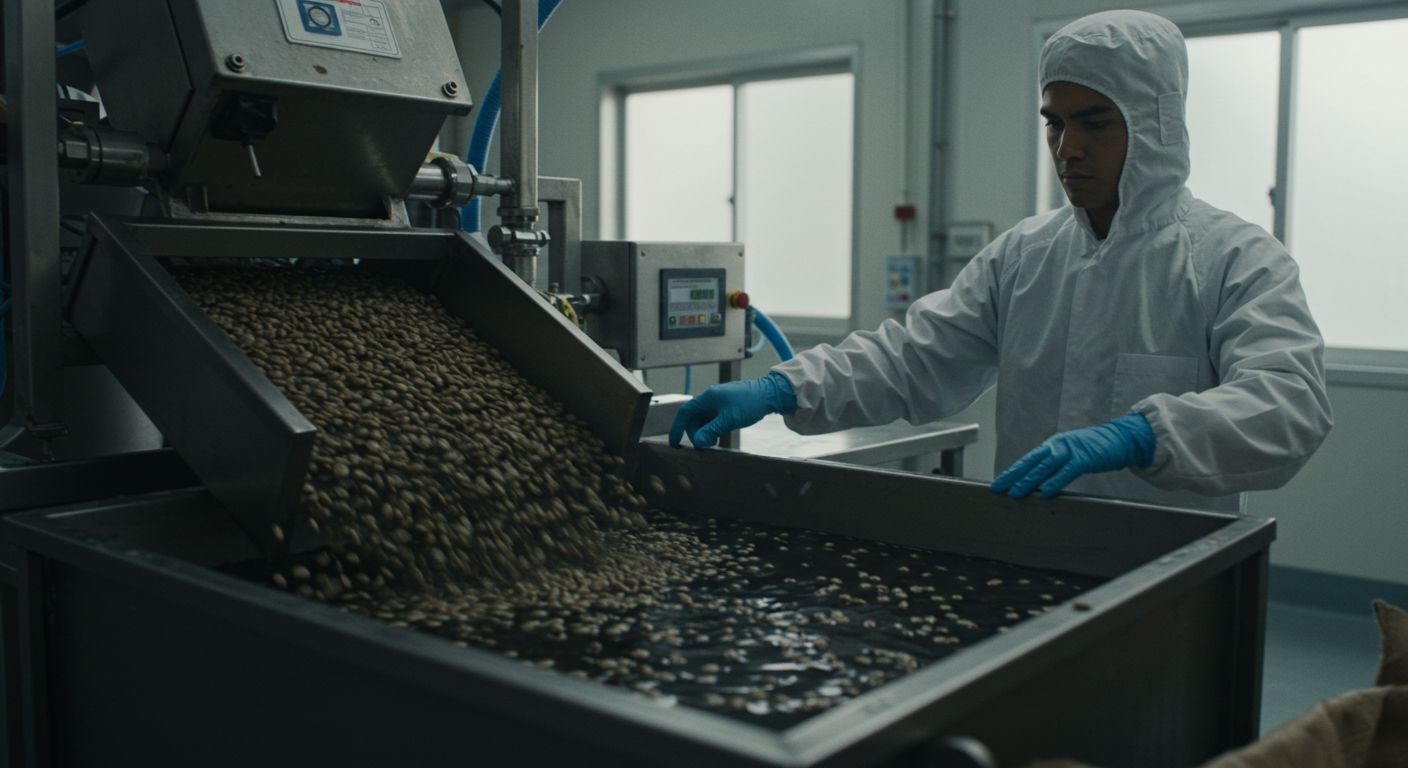Drawbacks of Decaf
Decaffeinated coffee drinkers have asked if decaf selections will be offered through Roof Deck Coffee. The answer is, not very likely. The short answer as to why is that we don’t consume decaf coffee over here in roof deck land, and it’s our policy not to offer anything that we don’t thoroughly enjoy ourselves.
The more in-depth answer is more of an ethical one. One that has to do with the production of decaffeinated coffee beans. Unfortunately, there isn’t a variety of decaf beans that grow on coffee trees. There are a couple of very different processes that achieve the extraction of caffeine from a coffee bean; both with questionable outcomes. Decaffeination is a process that removes caffeine from green (unroasted) coffee beans, and although no process can remove 100% of the caffeine content, it significantly reduces it, typically to about 3% of the original amount.
One method used to extract caffeine from beans is The Swiss Water process. This is the safest method in removing caffeine. It’s a chemical-free method using only water, high temperature and a lot of time. Unfortunately, it involves waste of product as well. The process begins with soaking green coffee beans in hot water and allowing them to soak for an extended period of time, while passing through a carbon filtration system that’s designed to contain the caffeine molecules. The caffeine molecules are removed from the solution, leaving only the flavor compound extracted from the green beans. These beans are then discarded, and a fresh batch of beans are added to the green coffee extract. Since the extract is saturated with flavor compounds, yet no caffeine, a process of diffusion occurs where caffeine flows through the carbon filtration system, and the flavor extract saturates the bean—-now 99.9% caffeine free. A considerable downside to this method is the discarding of the original beans. While the answers given as to what’s done with the discarded beans seem vague and ambiguous, one could assume that they aren’t being used for consumption. When you consider the amount of labor involved in growing and harvesting coffee beans, only to waste half a batch in processing a decaffeinated version seems counterproductive.

